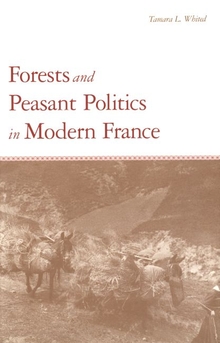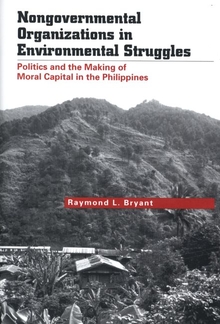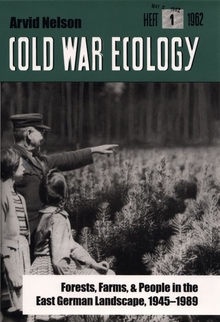Forests and Peasant Politics in Modern France
WARNING
You are viewing an older version of the Yalebooks website. Please visit out new website with more updated information and a better user experience: https://www.yalebooks.com
Tamara L. Whited
Confronting an ecological crisis in 1860, French officials initiated an unprecedented policy of alpine reforestation. The Alps, Pyrenees, and Massif Central mountains were fragile and degraded, scientific experts determined, and the salvation of the mountains (for the benefit of lowland farmers and urban areas) would require watershed restorations and reduced access to forest and pasture for alpine peasants. This book is an environmental and political history of the disputes over the uses of mountains and forests in France from the mid-nineteenth century to the eve of World War II.
Grounded in detailed case studies of two highland communities—Jarrier in Savoie and Massat in Ariège—the book sheds new light on one of the most pronounced conflicts between upland peasants and the state in modern France. Whited argues that the state did not push aside seemingly marginal people in a quick, decisive move justified by the imperatives of modernization. Instead, protesting peasants employed an increasingly flexible arsenal of political responses that forced the state to backtrack and compromise.
Grounded in detailed case studies of two highland communities—Jarrier in Savoie and Massat in Ariège—the book sheds new light on one of the most pronounced conflicts between upland peasants and the state in modern France. Whited argues that the state did not push aside seemingly marginal people in a quick, decisive move justified by the imperatives of modernization. Instead, protesting peasants employed an increasingly flexible arsenal of political responses that forced the state to backtrack and compromise.
Tamara L. Whited is assistant professor of history at Indiana University of Pennsylvania.
“Whited offers a genuinely challenging and important perspective on the history of French forests. Her engaging case studies will surely attract interest and debate.”—Peter McPhee, University of Melbourne
“In a study both well written and clearly argued, Tamara L. Whited adds significantly to a growing genre that treats ecological history as a complex of political, cultural, social, and economic interactions in which there are no heroes or villains but rather a range of confrontations among competing interests and competing discourses of knowledge.”—Christopher H. Johnson, American Historical Review
"Whited handles a very complicated account with sureness and grace, producing a book with implications beyond its immediate subject. . . . An important contribution to a new understanding of rural history."—James R. Lehning, Journal of Modern History
“The development of ‘scientific’ forestry in France and its application in the uplands of the Alps and Pyrenees provides the narrative thread for this interesting and well-argued book. . . . The story that Whited tells is a fascinating one. . . . Her arguments about the connections between scientific discourse, forest institutions and mountain communities are of great interest. In both its detailed case studies and the analysis of the ideologies of the afforestation programme, Whited’s book is likely to be of interest to a wide audience.”—Mark Cleary, Rural History
ISBN: 9780300082272
Publication Date: October 11, 2000
Publication Date: October 11, 2000
288 pages, 6 1/8 x 9 1/4
18 b/w illus.
18 b/w illus.














